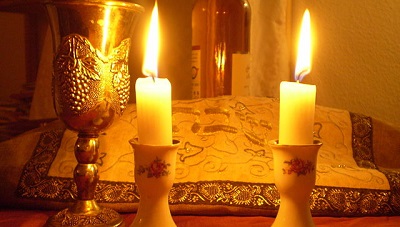“Kedusha,” or “holiness,” is a central concept in “Yahadut,” the Hebrew name for Judaism. This is because all holiness which manifests itself in various aspects of the Creation, in actuality or in potential, stems ultimately from G-d, the Creator, the Holy King of the Universe.
Why do we call G-d the holy king?
Part of the reason is that His Torah is entirely opposed to the abuse of power, and He, Himself, is described in terms very foreign from our conception of a flesh-and-blood king?
“Rabbi Yochanan said, ‘Wherever you find mention of the greatness of the Holy One, Blessed Be He, there you will also find mention of his humility. This phenomenon is written in the Torah, repeated in the Prophets, and stated a third time in the Sacred Writings.’
“It is written in the Torah, ‘For Hashem, your G-d, is the G-d of heavenly forces, the Master of masters, the great, mighty and awesome G-d, Who shows no favoritism and accepts no bribe’ (Devarim 10:17). “And afterwards it is written, ‘He performs justice for the orphan and the widow, and loves the stranger, to give him food and clothing. (Devarim 10:18)….”
What aspects of Creation can assume levels of holiness?
Some are the following:
– Nations – The Bible describes the People of Israel as a “Kingdom of Priests and a Holy Nation.” But how does a nation attain holiness? The answer is as it is written, “in order that you remember and do all of My commandments, then you will be holy unto Your G-d.”
– Individual Human Beings – By following the life style advocated by G-d “And you shall do that which is proper and good in the eyes of Hashem,” the Jew is commanded to “Be holy” and “to create holiness in himself, for I, the L-rd, your G-d, Am Holy.”
– Languages: the Hebrew Language is considered a “holy language” because of its intrinsic characteristics, for example, the total absence from its vocabulary of words of profanity, and also because of the way the Jewish People is commanded to use language, “Shemirat HaLashon,” “Guarding the Tongue” against slander, gossip, etc.
– Place – The Land of Israel is more holy than all other lands; the most holy city in the Land is Yerushalayim; the holiest part of Yerushalayim is the Temple Mount; the holiest part of the Temple is the Holy of Holies; the holiest place in the Holy of Holies is the point centered above the Ark, between the Kruvim, from which emanates the Voice of G-d.
Time – The Creator, Who is Eternal and not bound by Time, “Who ruled before any creature came into existence” and “After everything will cease to exist, He alone will rule, in Awesomeness” (“Adon Olam,” from the “Siddur,” the Prayer Book of the Jewish People), created a sequence of Time (possibly, but not necessarily, beginning with the postulated Big Bang):
“And there was evening and there was morning, One Day…And there was evening and there was morning, the Second Day,…,the Fifth Day, the Sixth Day.” The Creation of the Universe was a project of Six “Days.”
The Seventh Day, the Shabbat, was invested with holiness by G-d, the Holy Creator, “And the L-rd blessed the Seventh Day and made it holy, for on it He withdrew from all His ‘Melachah,’ by which the L-rd had created (the world), and made (it) ready for development.”
How can the individual Jew experience this holiness and, to some extent, contribute to it?
The individual Jew can celebrate the Shabbat by refraining from his creative interactions with the environment and by experiencing the Day as a Day of “Oneg,” “pleasure and delight” and “Menuchah,” “tranquility.” The Prophet Yeshayahu, Isaiah, describes the desired program for the Jew on Shabbat.
“If you restrain, because of the Shabbat, your feet, refrain from accomplishing your own needs on my holy day; if you proclaim the Day of Shabbat “a delight,” the holy one of Hashem “honored one,” and you honor it by not pursuing your own ends, from seeking your needs or discussing the forbidden; then you shall be granted pleasure with Hashem, and I shall mount you astride the heights of the world, and provide you with the heritage of your forefather Jacob – for the mouth of Hashem has spoken. (Yeshayahu 58:13-14)” (Not a bad promise!)
Part of the “Oneg” are the “Seudot Shabbat,” the Festive Meals of Shabbat, which begin with the recitation of “Kiddush,” the Sanctification Prayer.
The Evening Kiddush contains the description of Shabbat as “the first to be called holy,” which grouping includes Shabbat and the Holidays, the difference being that Shabbat was invested with holiness by G- d, whereas the Holidays are invested with holiness by Man, according to the Laws of the Torah (particularly in the Classical Period of Jewish History, when the Temple stood, and the Sanhedrin, the Jewish Supreme Court, declared “Rashei Chodoshim, the Beginnings of Months, based on the testimony of witnesses concerning their sightings of the New Moon).
In the “Minchah,” “Afternoon Prayer,” on Shabbat, there is included our hope that Hashem was satisfied with our Shabbat behavior:
“Our G-d and G-d of our forefathers, may You be pleased with our rest. Sanctify us with Your commandments and grant us our share in Your Torah; satisfy us from Your goodness and gladden us with your salvation, and purify our heart to serve You sincerely. O Hashem, our G-d, with love and favor grant us Your holy Shabbat as a heritage, and may Israel, the sanctifiers of Your Name, rest on them [“them” is to include the Time of the Mashiach, for Shabbat is said to be “reminiscent of the World-to-Come”]. Blessed are You, Hashem, Who sanctifies the Shabbat.”
